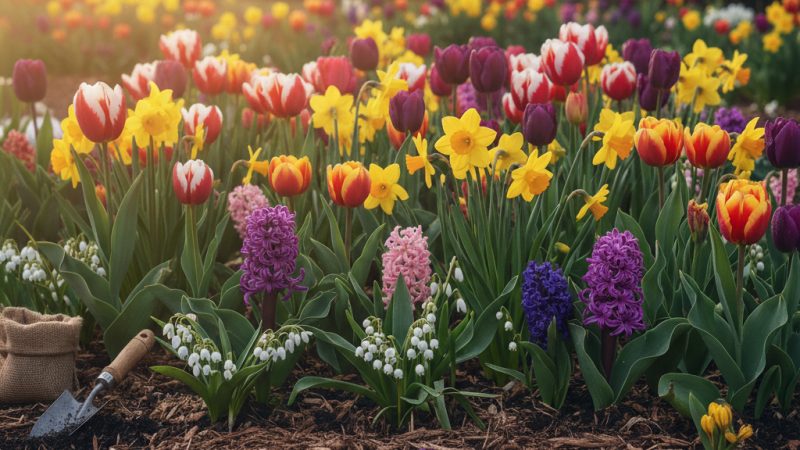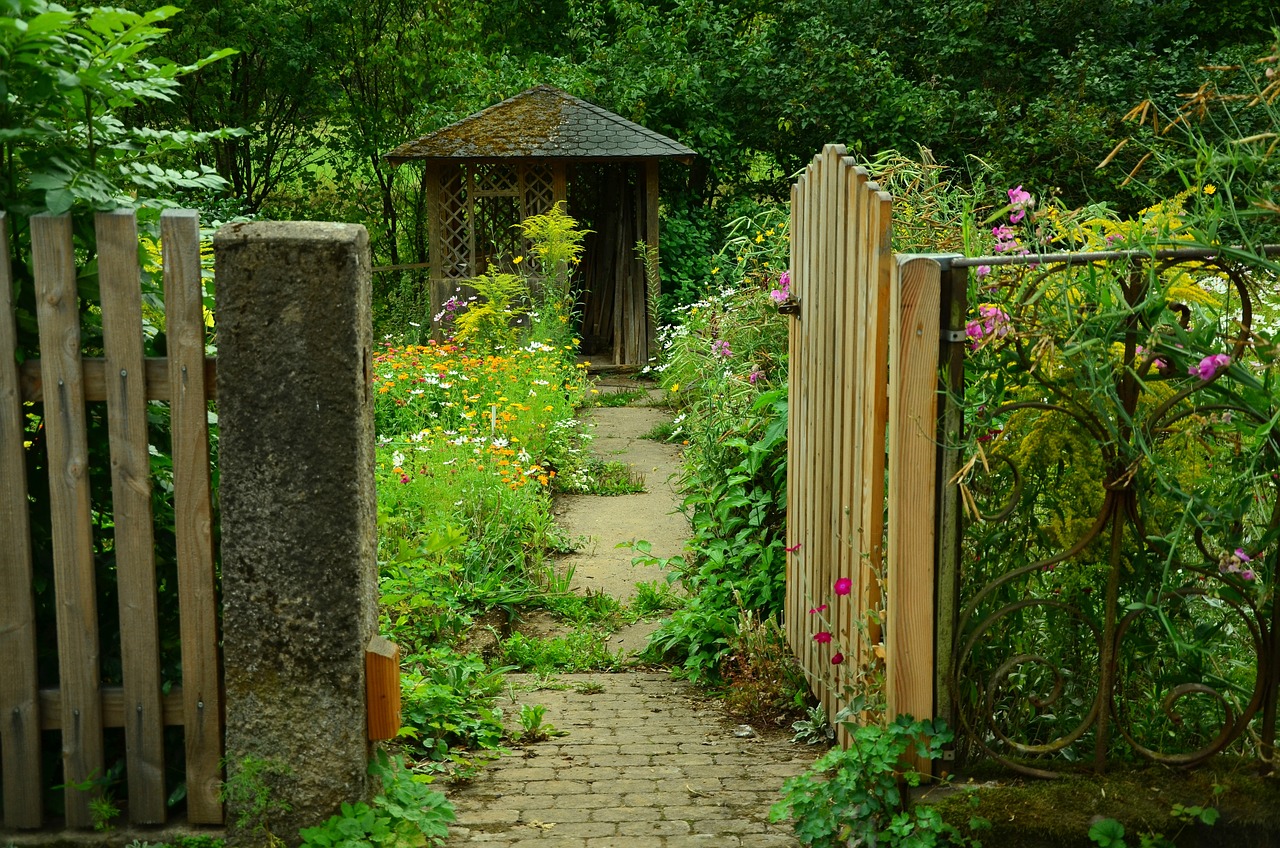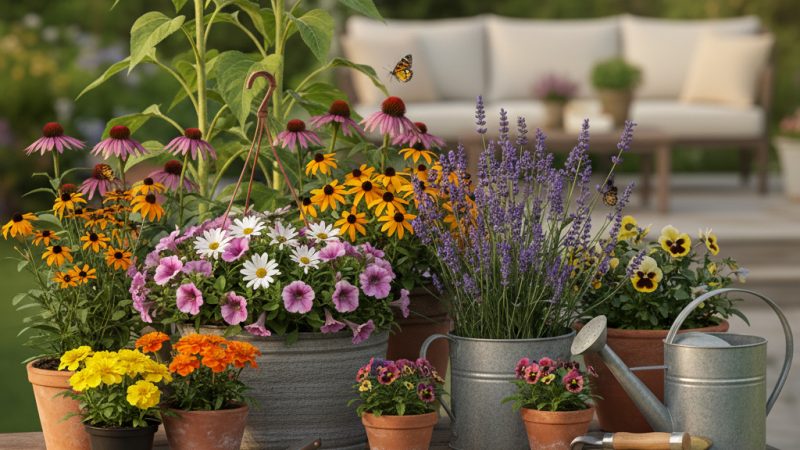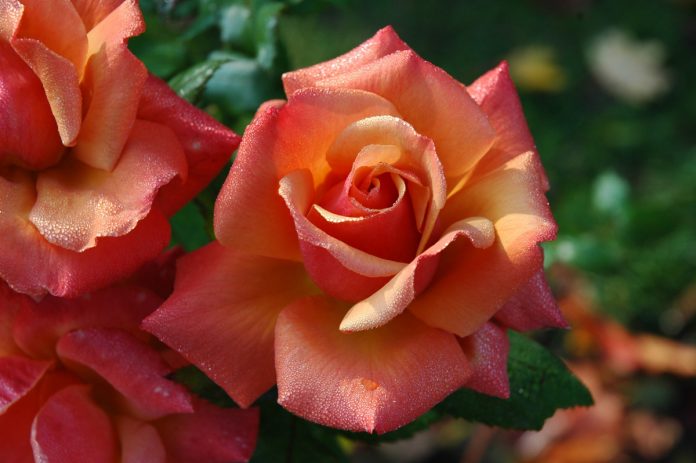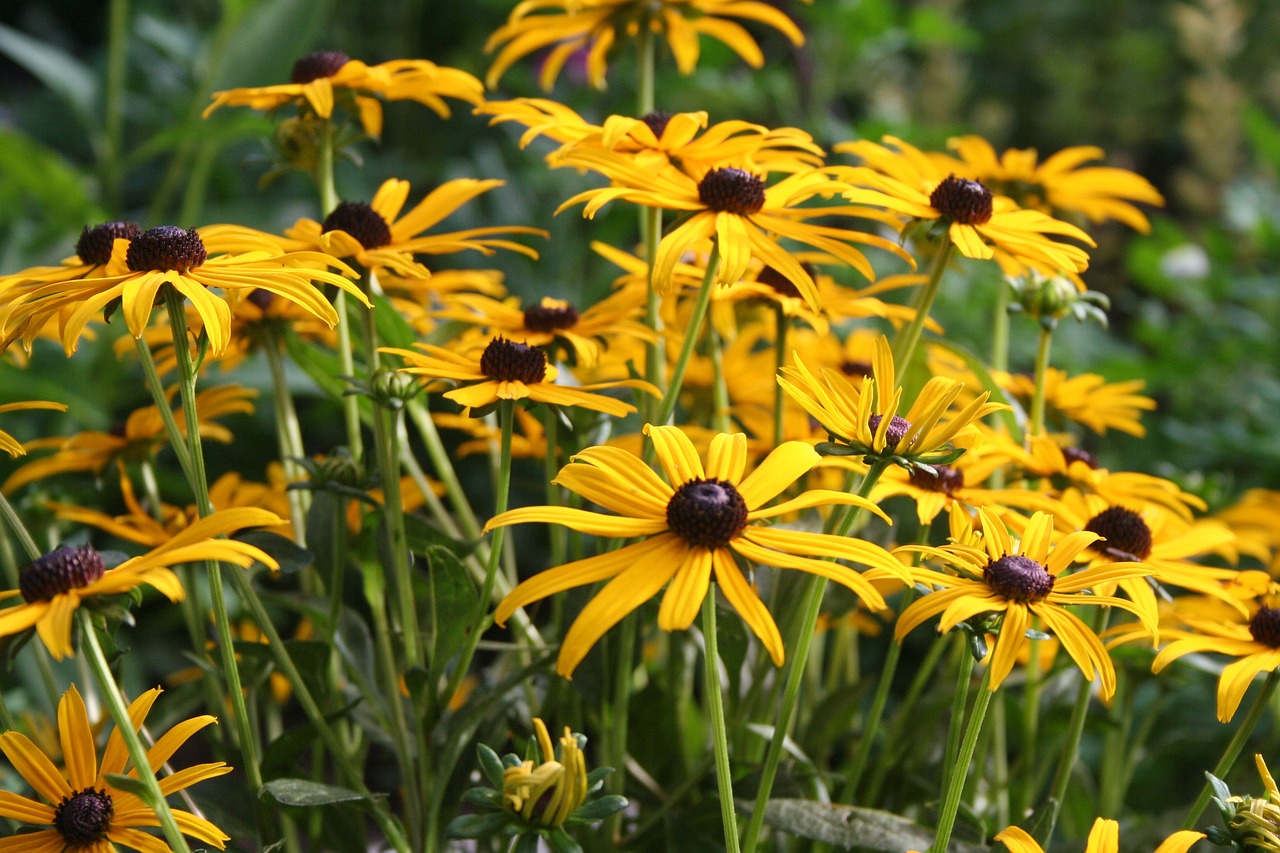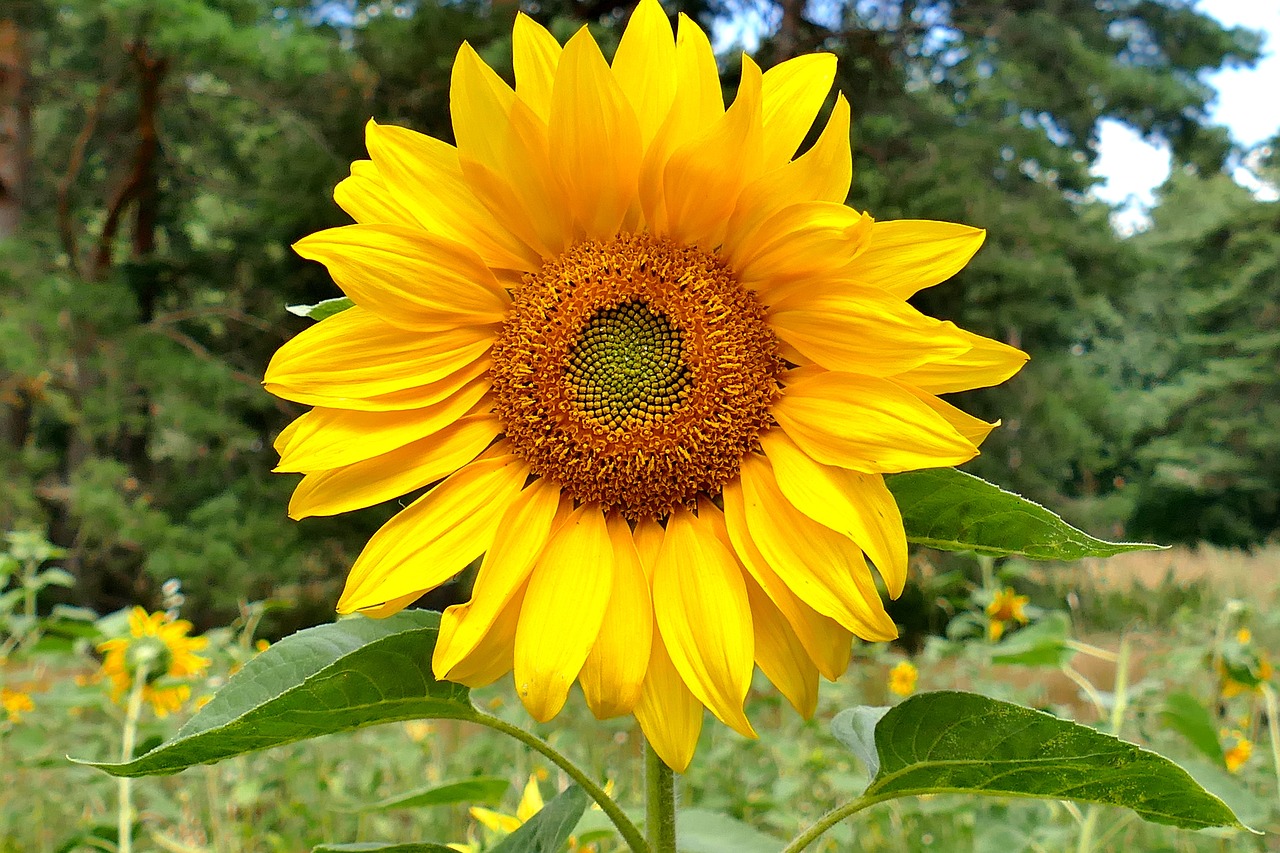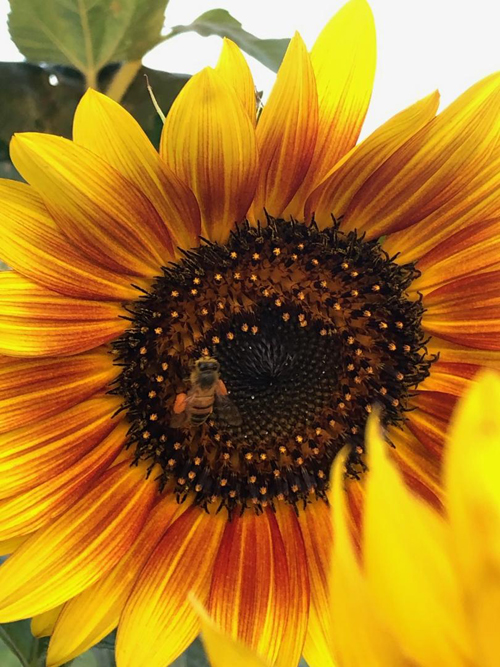How to Grow African Violets
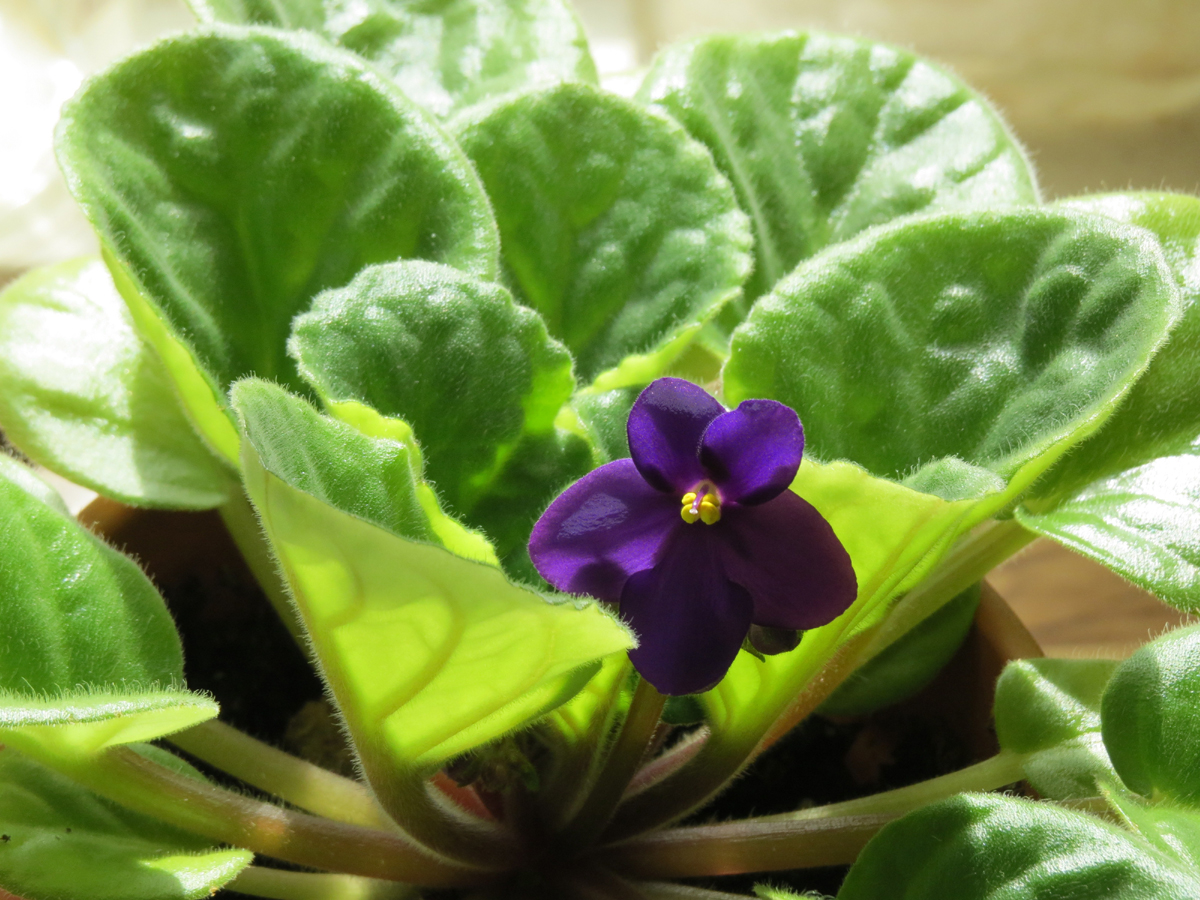
It is easier than you think to grow African Violets. Just provide the proper conditions for healthy growth.
Natural Light:
Adequate light is the most important factor in promoting flowering. Place plants near any window that has bright, but filtered, light. An east window is best because it gets morning sun. A thin curtain will be necessary if placing plants in a south or west window. In order to develop a nice symmetrical form, plants must be turned 1/4 turn every week.
Fluorescent Light:
If adequate natural light is not available, plants can be grown under fluorescent lights. Use double tube fixtures with one cool white bulb and one broad spectrum bulb. Lights should be 8 to 10 inches above the top of the plants and turned on for 12 to 14 hours a day. If plants have tight centers or seem to be bleaching out, reduce the number of hours to 8-10 a day.
When to Water:
More violets die from over-watering than from any other single cause. Violet soil should be kept evenly moist and never allowed to become soggy. Water only when the top of the soil is dry to the touch. Always use tepid water.
How to Water:
You can water from the top, bottom, use wicks or use self watering planters. However, about once a month, plants should be watered from the top to flush out accumulated fertilizer salts. Never allow plants to stand in water (unless wicked or Oyama Planters are used). If water gets on the leaves, dry with a paper towel to prevent leaf spotting.
Soil:
A potting medium suitable for African Violets should be sterilized, and light and airy to allow root penetration. Soilless mixes are ideal – they contain sphagnum peat, vermiculite and perlite.
Atmosphere:
Temperature and humidity are important factors. Most violets can tolerate temperatures between 60 and 80 degrees. Ideal temperatures are 72-75 degrees day-time and 65 degrees night-time. The preferred humidity range is 40% to 60%. A humidifier or bowls of water placed near plants can be used to increase you home’s humidity during heating season.
Feeding:
Lack of regular feeding is one of the reasons an African violet will not bloom. The best way to feed is to use a dilute fertilizer solution every time you water. Use 1/8 to 1/4 tsp. fertilizer to one gallon of water. A balanced fertilizer should be used such as 20-20-20 or 12-36-14. Find a fertilizer with a low nitrogen urea content as urea burns the roots. Some brands are Peters, Optimara, Miracle Grow, Schultz.
The Author:
Sharon Rosenzweig, Board Member of Baystate African Violet Society. I have been growing African violets for over 30 years. My plants have won many show awards, including Best in Show.

